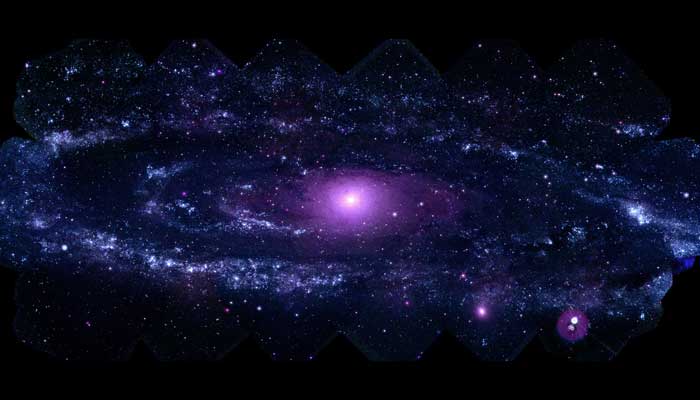Astronomers uncover galaxy remains unchanged for billions of years
Recent studies show that this galaxy has remained largely unaltered for approximately 7 billion years
July 01, 2025

Astronomers have identified a distant galaxy known as a "cosmic fossil," which has remained essentially unchanged, or "frozen in time," for billions of years.
Similar to how dinosaur fossils on Earth provide insights into the evolution of life, this cosmic fossil—named KiDS J0842+0059—can offer valuable clues about the evolution of the universe, reported Space.com.
A cosmic fossil is a galaxy that has avoided significant collisions or interactions with other galaxies, allowing it to serve as a pristine time capsule for studying the characteristics of early galaxies.
Recent studies using data from the Large Binocular Telescope (LBT) have shown that this galaxy has remained largely unaltered for approximately 7 billion years.
"We have discovered a galaxy that has been 'perfectly preserved' for billions of years, a true archaeological find that tells us how the first galaxies were born and helps us understand how the universe has evolved to this day," team co-leader and National Institute for Astrophysics (INAF) researcher Crescenzo Dove said in a statement.
"Fossil galaxies are like the dinosaurs of the universe: studying them allows us to understand in which environmental conditions they formed and how the most massive galaxies we see today evolved."
KiDS J0842+0059, situated about 3 billion light-years from Earth, was discovered in 2018 through the Kilo Degree Survey (KiDS).
Astronomers used images from the Very Large Telescope Survey Telescope (VST) to determine the galaxy’s size and mass, with these measurements further refined using the Very Large Telescope (VLT) and its X-Shooter instrument.











